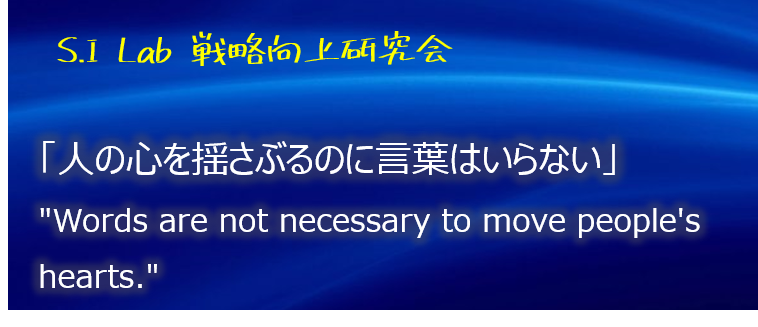音楽を聴いた時、映画や舞台を観た時、作曲や演出の知識はなくとも人は感動を覚えます。
なぜ心が動いたのか、その理由は分からなくても実は理屈があります。
音楽、芸術、ジェスチャー、表情、姿勢などの非言語情報は、私たちが感じる感情や感動に大きな影響を与えることがあります。
また、ジェスチャーや表情は、私たちが相手の感情や意図を理解するのに役立ちます。
感動を呼び起こすものは、単に情報を伝えるだけでなく、私たちの感情や感性に訴えるものであることが重要です。
非言語情報は、そのような感動を呼び起こす上で非常に重要な役割を果たしています。
メラビアンの法則では、人と人とのコミュニケーションにおいて、聴覚と視覚情報の非言語情報が93%のウェイトを占めています。
さて、MRを減らしデジタルによるアプローチを積極的に推進する製薬会社は期待する売上インパクトを得ることが出来るでしょうか?
例え費用対効果が現れていなくともDXサプライヤーに多額の経営資源が投下されていることは間違いありません。
“Words are not necessary to move people’s hearts.”
When listening to music or watching a movie or play, even without knowledge of composition or direction, people feel moved. Although they may not know why their emotions are stirred, there is actually a reason behind it.
Nonverbal information such as music, art, gestures, expressions, and posture can have a significant impact on the emotions and feelings we experience. Additionally, gestures and expressions can help us understand the emotions and intentions of others.
What is important in evoking emotions is not just conveying information, but appealing to our emotions and sensibilities. Nonverbal information plays a very important role in eliciting such emotions.
According to the Mehrabian rule, nonverbal information from auditory and visual cues accounts for 93% of communication between people.
Now, can a pharmaceutical company that reduces MR and actively promotes a digital approach expect to achieve the desired sales impact? Even if cost-effectiveness is not yet evident, it is certain that significant management resources are being invested in DX suppliers.

